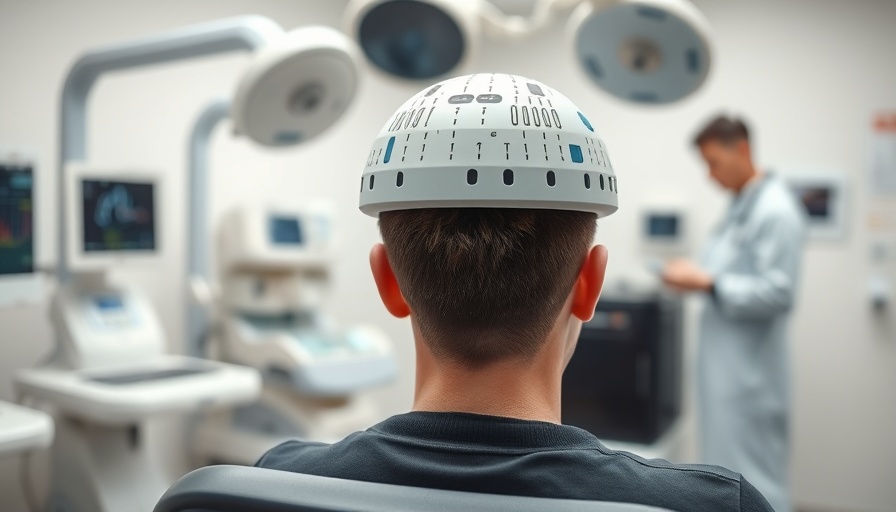
Revolutionizing Alzheimer’s Diagnosis: The Role of Early Detection
The quest for early diagnosis of Alzheimer’s disease is becoming increasingly vital as the condition currently affects approximately 32 million individuals across the globe. The introduction of a three-minute noninvasive brainwave test seeks to change how we approach Alzheimer’s detection. This innovation may open doors to early intervention and potentially slow disease progression.
Understanding Mild Cognitive Impairment (MCI)
Many individuals initially present with mild cognitive impairment, or MCI, a state that can serve as a precursor to Alzheimer’s disease. It is essential to recognize that not all individuals with MCI progress to dementia, but ongoing research indicates that progressive memory issues are prevalent in those diagnosed with MCI. By utilizing tools that can swiftly identify such cognitive obstacles, healthcare practitioners can provide more effective treatments and lifestyle recommendations earlier.
Fastball EEG: How It Works
The Fastball EEG test represents a step forward in diagnostic technology. By passively recording electrical activity in the brain while subjects engage with visual stimuli, this method measures how the brain recognizes objects without requiring active participation from the individual. This streamlined approach could dramatically reduce the time and effort involved in traditional assessments, making it easier for patients to undergo testing.
Why Early Diagnosis Matters
According to Dr. George Stothart, an expert in cognitive neuroscience, diagnosing Alzheimer’s up to two decades earlier could lead to crucial benefits. These include equipping patients with the knowledge necessary to make lifestyle adjustments, which can mitigate symptom advancement, and ensuring quicker access to emerging, potentially more effective medications. Additionally, earlier diagnoses enhance participant stratification in clinical drug trials, thereby improving the development of new treatments.
Implications for Global Health and Policy
With Alzheimer’s disease being a significant global health challenge, the introduction of innovative diagnostic methods like Fastball EEG can have wide-reaching policy implications. By promoting awareness and accessibility in testing, the world health organization can guide healthcare systems to incorporate early diagnostic techniques as a staple of preventative care.
Emotional Perspectives: The Impact on Families
The emotional toll of Alzheimer’s can be profound not only for those diagnosed but also for their families. As emotional health awareness grows, initiatives that offer early diagnosis and treatment could give families hope, allowing them to prepare and act sooner. This understanding fosters a supportive environment where both patients and caregivers can effectively navigate the challenges of this diagnosis together.
Final Thoughts on Progressing Towards Better Alzheimer’s Care
In conclusion, as research continues to evolve, tools like the Fastball EEG represent a beacon of hope in Alzheimer’s care. By prioritizing early diagnosis and intervention, we can enhance the quality of life for those affected by dementia and create a more informed society. With awareness at the forefront, we look forward to healthier living through proactive engagement with cognitive health.
The journey towards addressing Alzheimer’s doesn't stop here. We encourage readers to stay informed on advancements in health technology and participate in discussions about cognitive health. Understanding and sharing information can make significant strides in tackling this widespread issue.
 Add Row
Add Row  Add
Add 




Write A Comment